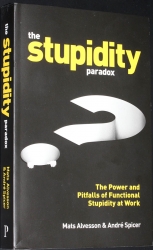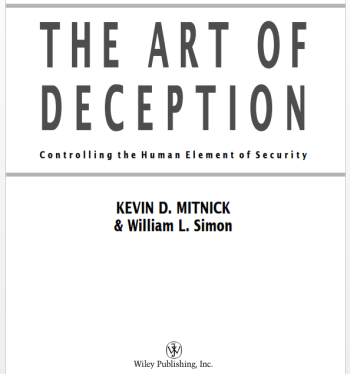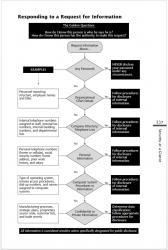Book club: Formula 1 All The Races - The First 1000
Sunday, March 21. 2021


This one is a simple directory or reference manual of first thousand F1 races. If you want your copy, go for Formula 1 All The Races - The First 1000 @ Veloce Publishing.
For a non-fan, the book is as dry as a phone book. For a true fan like me, there are short descriptions of seasons and every single grand prix driven. Personally, I love reading about the early days. TV was barely invented, but wasn't such a huge part of F1 as it is now. What I do is fix a rerefence point from the book and fill in the gaps by googling for additional information. This works well as not all of the races are that interesting.
In short: Definitely not for everyone, but only for fans (pun intended).
Book club: The Stupidity Paradox - The Power and Pitfalls of Functional Stupidity at Work
Saturday, April 7. 2018
Human stupidity has always intrigued me. It is, after all, the driving force of this world. Most people will disagree with me and say, the driving force being money or sex or ... whatever. But take my word for it, it is stupidity! All you have to to is look around and realize, that stupid clowns get elected to powerful positions in democratic systems, idiots are disputing easily proven scientific facts and as an example are claiming that world is flat. Also in our everyday life we do stupid things just because "we always have done so". So, it is stupidity that drives you! People in general are not designed to make critical observations, instead we wired to crowd-behave in a socially acceptable manner. Being stupid.
When taken the context of any regular place of work, two gentlemen Mr. Alvesson and Mr. Spicer took a very close look on this phenomenon. And their book The Stupidity Paradox investigates these.

Stupidity: Entire book is written around a concept of functional stupidity. Authors define functional stupidity as:
Functional stupidity is the inclination to reduce one's scope of thinking and focus only on the narrow, technical aspects of the job.
Paradox: For an organization, just focusing on a narrow scope is often beneficial. Cutting corners makes everybody's life easier and consumes less resources, it is simply thoughtless and useful. There comes the paradox, your useful thing might be very destructive without you knowing it.
Nobody is safe from functional stupidity, especially smart people are able to wrap themselves in a "comfort zone" or a bubble, where everything they do and say appear smart. Outside the bubble, things may look a bit different.
The book describes functional stupidity inducing from five different sources:
- Leadership:
- Often leaders are deluded. They really don't have a grasp what's going on. It doesn't stop them making decisions, though.
- Structure:
- Add bureucracy. If there isn't enough information to do one's job, just add more forms to be filled and couple guidelines to get that information. What harm could dozens of contradicting guidlines and mandatory forms cause, right?
- Alternatively, just change the existing organization structure to "improve" it. Throw in couple "promotions" with really cool title and minor pay raise without actual change to the tasks to improve morale. Do this couple times and everybody will be so lost.
- Imitation:
- "Since everybody else is doing it, also we must do it". However, whatever "it" is, they may be doing it on a different context and have some kind of minor tweak in their way of doing it. Also, in reality not "everybody" does it. Such activities include typically just corporate window dressing, with little actual changes.
- Branding:
- Sometimes a consultant approaches corporate execs and tells them, that how others perceive the corporation is somehow wrong or bad. This triggers an instant imago "improvement" -campaign to make changes, which are not based on reality but merely on bullshit. Often, the results are not something you'd really want to be proud of.
- Culture:
- Getting bad news really sucks, right? Getting bad news about from your organization really really sucks, right? Easy fix: let's make a decision to never tell each other bad news! The result is a corporate culture, where you really cannot criticise anything, bring forward potential improvements or just not be able to tell, that corporation is in a downward spiral.
At the end of the book, authors cover the most important part, how to manage functional stupidity. How to detect it and how to make sure, that it doesn't cause more harm. If such a mighty force is left un-wrangled, lots of damage can be done. Ultimately the cure is simple: create a culture where smart people can observe and criticise day-to-day practices and top-level execs to take the feedback seriously. Sometimes the emperor is naked, insted of having new clothes.
Of all the vivid examples of stupidity in the book, my favorite is The Credit Crunch of 2007. Really smart (but greedy) people created a money-making-machine called CDOs. Those smart people made tons of money to themselves and to their employers, but lost the focus on the big picture. We know how that ended up.I read trough this book with a mixed feelings. Sometimes laughing out loud but at the same time felt like crying, when the description of functional stupidity ripped open old wounds.
Book club: The Art of Deception: Controlling the Human Element of Security
Sunday, November 19. 2017
About Humble Bundle
Couple months ago there was a real good deal in Humble Bundle for eBooks. For those of you who don't know what Humble Bundle is, it's a for-business subsidiary of IGN Entertainment (which again is a subsidiary of Ziff Davis). Unlike regular charities , which just make a plea to give money to them, Humble Bundle makes deals with software vendors to sell products which are way past their prime money-making age. Their slice of the operation is ~20% and the rest goes to software vendors and the charity of your choosing. In many cases you can choose the charity:software-split from range 0-100% and if you feel like it, you can tip Humble Bundle with something extra.
They passed $100M USD donated in September 2017. As there are costs of running the business, they raked in money more than that, but so far nobody has proved that they wouldn't actually deliver on their charity-promise. They are doing business with major corporations and if Humble Bundle would be caught red-handed, they would face a horde of lawyers suing their asses. For the time being, I choose to believe that they keep their promises and occasionally when I see something interesting in their mailing list, keep sending my money to them.
About the author, Kevin Mitnick
Ok, enough Humble Bundle, this is supposed to be about the book.
Since the deal was sweet, I went for it and paid couple € for the de-luxe bundle of security-related books (I think the actual amount was in region of 25 €). They delivered the download link for unlocked PDFs instantly after my PayPal payment was accepted. So, now I'm a proud owner of 14 books about information security.


The one book that I really wanted was the famous Art of Deception by Kevin Mitnick, a reformed bad boy who turned white-hat hacking. A warrant to arrest him was issued back in 1992 and he managed to evade FBI till February 1995. Since there was no applicable legislation in USA to convict him from the cracks he made to various US Government agencies and private corporations, US Department of Justice managed to keep him incarcerated for 4 and half years without bail or trial. When he got released to general public, a judge slapped a 7 year ban for him not to profit from selling books or movies, still on 2002 he put together this book and managed to get it published. He also published a book The Art Of Intrusion: The Real Stories Behind The Exploits Of Hackers, Intruders, And Deceivers in 2005, but it's unclear to me did he profit from them at all. Wired confirms, that the ban from profiting ended in January 2007. If anybody knows that, please drop a comment.
About the book
Well, enough of the author, this is supposed to be about the book.
The stories about social engineering tricks either Mr. Mitnick pulled off himself or the stories he describes in his book are really intriguing. But at the same time the technical details are vastly outdated, remember it was published in 2002 and stories are from 60s to 90s. Reading stories about dial-up modems, faxes and landline telephone voice mails make me laugh in the wrong place of the story. So, while reading, I was constantly thinking if it would be possible to pull off a similar feat in the modern world.
The books is written on four sections. Parts 1 and 2 are more about how social engineering works. There is always sonebody with poor awareness, either by not doing what was instructed or the instructions are missing or poorly done to begin with. Part 3 contains the "war stories" how people were fooled to say or do something they wouldn't normally do and while doing it didn't understand the value of their deed to the opposing party. To summarize, it's never a single piece of information which can compromise your organization, it's always a combination of things. To pull off such a social engineering hack, you must have detailed information about procedures and find a weak spot there. Also, most of the hacks are done to multi-site corporations. If your organization is geographically bound to a single location, it will be very hard to call in and request something "for my boss" at the remote site. My experience about small and medium sized Finnish companies is, that most people know everybody at least by name. Any incoming call would immediately raise suspicion and would question the caller's true agenda and identity.
Part 4 contains instrictions how to prevent such socical engineering attacks. For anybody not making security policies that part might be little bit boring. Here is an example of a flowchart how to train personnel:

Copyright © 2002 by Kevin D. Mitnick
Given in modern world, that government organizations don't need to pull of such hacks to get your information. You've already volunteered all of that! All they need to do is capture it from your cloud service provider's hard drive. Also, generally speaking personnel are more aware of possibility for social engineering. In his CeBIT Global Conferences 2015 video he claims, that for example dumpster diving still works. I personally wouldn't believe it. In Europe we don't need to print source code o passwords to paper and if we would be that stupid, there is a special secret-material-to-be-destroyed -paper bin at the office for such confidential waste.
Also, I remember seeing a video (... which unfortunately I was unable to locate) of Mr. Mitnick describing an assignment he got from a company, where his social engineering failed. It happened, that the receptionist knew about it. When Mr. Mitnick was requesting for a piece of information to get his assignment going forward, the receptionist actually responded: "Have you heard of Kevin Mitnick's book Art of Deception?". So, that was an example of well trained personnel to save that day. But unfortunately the book doesn't have a single example of social engineering failing. I was kinda expecting to see some of those.
About recommendations: people already knowledgeable about social engineering and feats that Mr. Mitnick pulled off don't get that much out of the book, but for everybody else, the book offers mind-opening stories, which can be reflected in everybody's real life. When somebody asks you for something they should already know, it may be time to think about social engineering.
If you have 6 minutes to spare, here is a DEF CON 23 video of Mr. Mitnick pulling off a social engineering hack, with permission from the target corporation, targeted to a pre-selected employee. They lure the poor guy to go to a website using Internet Explorer, which at the time had a known security flaw in it. That way they get a some sort of remote-access-toolkit to his computer. Nice! But not possible without the actual injection using the flaw being there.
Book club: Security Engineering
Monday, September 12. 2016
Every once in a while I have enough time to read books. The ones made out of paper having printed words and images on the paper. And pretty much 98% of the books I've read in the last couple of decades have something to do with my profession. There is one book, that's worth mentioning: Security Engineering by Ross Anderson.

The price point for getting this one is a non-issue, you can download the entire book as a PDF with no cost at http://www.cl.cam.ac.uk/~rja14/book.html (that's at University of Cambridge). Having the book available is fully intentional, as four years have passed, author and publisher have agreed to place the material freely available for anybody interested. I most sincerely thank Mr. Anderson of doing that.
Of yourse, I recommend you to support this good work and purchase one. Go to Amazon, or similar and get your own copy. It will include a digital copy, all you have to do is go to above link and download one. ![]()
I'd definitely recommend this book to anybody ever designing or implementing anything with a computer. As the phrase goes: “Smart people learn from their mistakes. But the real sharp ones learn from the mistakes of others.” This is your chance of getting ahead and learning how some smart people blundered in their design and/or implementation of security. There is so much information in the book, but I found the case studies being the best part. The general idea is to get an injection of experience and start to think like hackers do.
My recommendation is that, for anybody working in software engineering should memorize this book and have an exam taken, so that it is crystal clear how secure systems are done.

